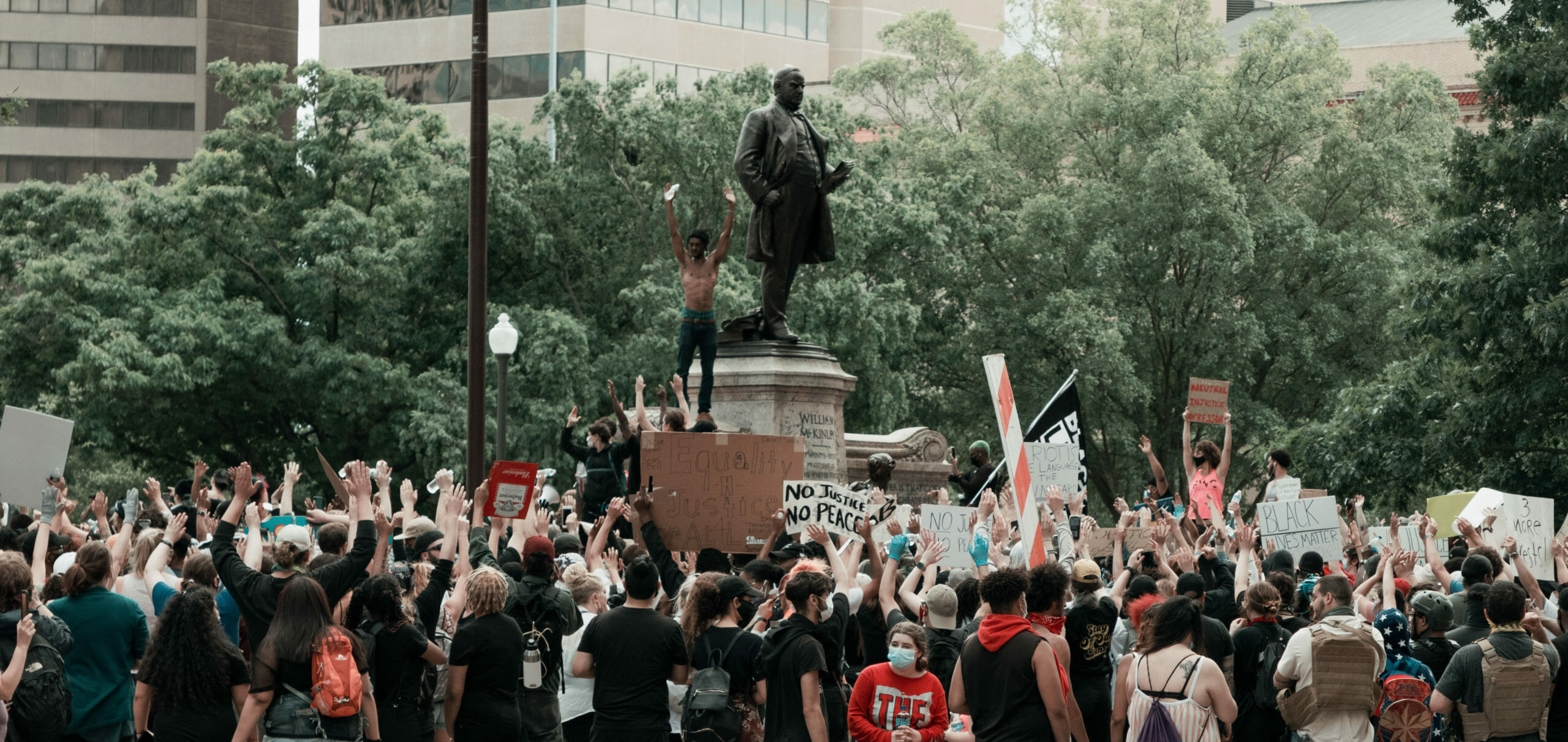We are lost. We are scared. We are heartbroken.
While we are still sheltered inside from a deadly virus, we witness another inexcusable instance of police brutality. We watch as hundreds march in our city for justice for George Floyd with signs reading “Say His Name.” Let us also not forget the all too recent murder of Breonna Taylor and the double silencing of the plight of Black women.
We receive countless news alerts and curfew announcements.
We see videos of some police covering their body cameras, using mace against our local representatives, resorting to tear gas and wooden bullets. We fear that our already strained faith in our police system’s duty to protect us will be irrevocably lost.
We are high schoolers. We crave leadership. But when we look to the highest level of leadership in this country, we only see someone who incites hatred instead of compassion. We find no sense of direction from the person elected to serve us. Instead, we are reminded of what leadership looks like in an email from our Dean, Dr. Losambe, titled “Dear African American Students.”
He describes the painful lived reality for our Black classmates:
“As I watch the news, read social media posts and see videos of families pleading for change (once again), I too write this with a heavy heart. A mother recently shared that her son is afraid of leaving the house because he is afraid that people will not see his humanity, but see a Black man that is a threat to them and society.”
To our Black classmates, he said, “You are valuable. Your Blackness is valuable.”
“Your Blackness is not a mistake. You stand on the shoulders of giants that have paved the way for you. Know our history, be proximate to it, and let the echoes and whispers of those that have gone before us allow you to find your voice. Then, use that voice to send waves into your present and future that will disrupt mediocrity and change structures, systems, and ways of being that keep you (us) contained, suffocated and disempowered.”
Dr. Losambe also provided resources and suggestions for change and connection–whether through narrative, mindfulness, prayer, meditation, or community networks.
As the school year has come to a close, we were not expecting a statement from our Dean, but he wrote:
“We aren’t just here to unlock your academic potential, but position you to live a life worthy of your individual callings. We are here for you. Every adult knows that in order for you to truly fulfill your calling, you need to be secure in your identity and know your worth.”
With these words, Dr. Losambe reaches us in a way our president cannot. Dr. Losambe knows us. And we know him.
Dr. Losambe supports us at our sports matches, musical concerts, and plays. He addresses us by name while passing in the halls. He keeps his office door open to us. We are all comfortable with Dr. Losambe because, as our Dean–he not only hears–he listens.
While we are fortunate to receive guidance from Dr. Losambe, we know others are not.
We attend a school that highlights diversity and is committed to inclusivity and togetherness. We host educational seminars and meet in affinity groups.
It is through unity–not division–that we learn how to lead.
But we must understand that this is an issue that goes beyond our school gates. There are those in our community who are not protected because they go to Academy. There are students who must not only study material for their driving test but also safety protocols for when they are confronted by police. There are students who think twice before going out for a jog. There are students who have to think about how they dress in public. There are students who are forced to consider the risk of going out alone to purchase something as simple as a bag of Skittles.
At the same time, there are students who live without this constant unease and fear. These are the students who are protected by their privilege–by the security of Whiteness.
As students at the Academy, we must help our society do better. Hear our Black students. See our Black students. Tell them you care. Recognize that there are difficult conversations we have to face: at home, in school, within our communities. Reach beyond your comfort zone.
To apply allyship, we must understand and empower each other. For many of us, that understanding must start from a place of discomfort.
We still have much to learn, for no matter our race, gender, religion, or sexuality, we all have implicit biases. Most importantly, we must acknowledge systemic racism. When we stop acknowledging, we are contributing. We become a part of the problem.
When you see the popular saying, “Neutrality is complicity,” please see it for what it means. You do not have to physically protest to be active. There are many things you can do to support one another–from writing letters and calling local representatives to adding more books by Black authors to your summer reading list. We must keep in mind the countless stories that go unrecorded. Dr. Losambe’s email emphasizes that this is a constant issue. Do not let George Floyd and Breonna Taylor be forgotten as hashtags. Our generation must channel our anger and our sadness to break the cycle.
Today we may feel defeated, but we cannot abandon hope for our future. How you can help: call Mayor Ginther or City Attorney Zach Klein to support protestors arrested (Ginther/614-645-7671, @MayorGinther311@columbus.gov; Klein: 614-645-7385, @zmklein@columbus.gov) or Call your local representatives








